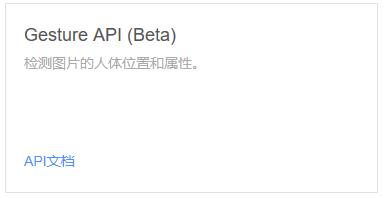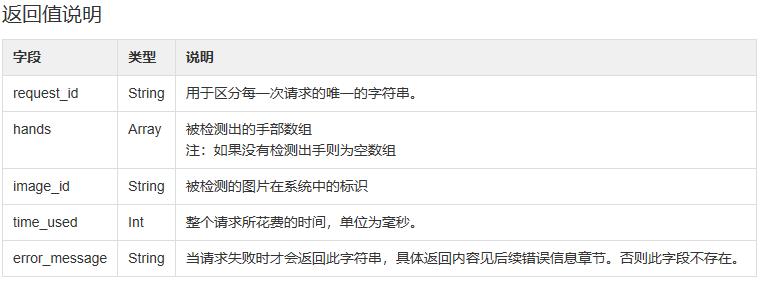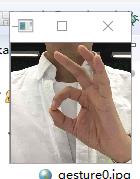2. 手势识别系统设计——使用 Face++ API
Posted 小可爱的大笨蛋
tags:
篇首语:本文由小常识网(cha138.com)小编为大家整理,主要介绍了2. 手势识别系统设计——使用 Face++ API相关的知识,希望对你有一定的参考价值。
通过普通摄像头拍摄出的照片来进行识别是存在很大的困难的,但是有困难才能找到更好的方法去解决。在百度上大致找了一下手语识别的案例,很少。API只是看到了Face++发布的手势识别,在我写文章的时候又看到了百度发布的手势识别API,之后会尝试去进行使用。
这次使用的是Face++的API,Face++的API是在之前发现的,功能上的话还是比较强大的,但是没有离线版本,需要将数据进行上传,然后对JSON进行解析得到结果。

这是官网给出的一个Demo,识别率挺不错的,最后给出的是一个在20种手势上的分布概率,接下来我们自己调用一下API分析自己的手势。
1. 查看官方的API。找到Gesture API,先看一下是怎么说的。

调用参数:


官方还给出了一些调用错误返回的参数的说明,有兴趣的可以去官网看一下。
还给出了一个使用命令行调用API的实例:

从实例上不难看出,向 https://api-cn.faceplusplus.com/humanbodypp/beta/gesture 发送请求,默认的参数有 api_key,api_secret,image_file。api_key和api_secret可以通过控制台进行生成。

接下来开始写代码的调用,Python版本的,其他版本的类似。
我们将API封装成一个类 Gesture:

将其中的key和secret替换成自己的就可以使用:
'''
# -*- coding:utf-8 -*-
@author: TulLing
'''
import requests
from json import JSONDecoder
gesture_englist = ['big_v','fist','double_finger_up','hand_open','heart_d','index_finger_up','ok','phonecall','palm_up','rock','thumb_down','thumb_up','victory']
gesture_chinese = ["我最帅",
"拳头,停下",
"我发誓",
"数字5",
"比心",
"数字1",
"好的呢,OK",
"打电话",
"手心向上",
"爱你,520",
"差评,不好的",
"好评,Good,很棒",
"胜利,开心"]
# 将字典排序
def sort_dict(adict):
return sorted(adict.items(),key= lambda item:item[1])
class Gesture(object):
def __init__(self):
self.http_url = 'https://api-cn.faceplusplus.com/humanbodypp/beta/gesture'
self.key = '*****'
self.secret = '******'
self.data = "api_key":self.key,"api_secret":self.secret
# 获取手势信息
def get_info(self,files):
response = requests.post(self.http_url,data=self.data,files=files)
req_con = response.content.decode('utf-8')
req_dict = JSONDecoder().decode(req_con)
#print(req_dict)
if('error_message' not in req_dict.keys()) and (len(req_dict['hands'])):
# 获取
hands_dict = req_dict['hands']
#print(type(hands_dict))
# 获取到手的矩形的字典
gesture_rectangle_dict = hands_dict[0]['hand_rectangle']
# 获取到手势的字典
gesture_dict = hands_dict[0]['gesture']
return gesture_dict,gesture_rectangle_dict
else:
return [],[];
# 获取到手势文本信息
def get_text(self,index):
return gesture_chinese[index]
# 获取到手势对应的概率
def get_pro(self,gesture_dict,index):
# print(gesture_dict)
if(gesture_dict is None or gesture_dict == []):
return 0
return gesture_dict[gesture_englist[index]]
# 获取到手势的位置
def get_rectangle(self,gesture_rectangle_dict):
if(gesture_rectangle_dict is None or gesture_rectangle_dict == []):
return (0,0,0,0)
x = gesture_rectangle_dict['top']
y = gesture_rectangle_dict['left']
width = gesture_rectangle_dict['width']
height = gesture_rectangle_dict['height']
return (x,y,width,height)
封装好了Gesture类后接下来就是调用:先将官方给出的手势的图片保存起来,为了方便只保留单手的手势,然后生成随机数读取手势图片,我们去模仿手势,后台显示是正确手势的概率以及具体的位置,如果图像中没有手势则概率为0,位置为(0,0,0,0)。
'''
# -*- coding:utf-8 -*-
@author: TulLing
'''
import sys
sys.path.append("../gesture/")
import os
import random
import cv2 as cv
import time
import LearnGesture
def gestureLearning():
os.system("cls")
print("进入学习手势模式!")
print("我们有13个手势,来和我学吧!(每次结束后可以选择输入 Q\\q 退出!)")
while(True):
pic_num = random.randint(0,12) # 生成显示的图片的编号(随机数: 0 - 13)
print(pic_num)
pic_path = '../gesture/pic/gesture' + str(pic_num) + ".jpg" # 生成图片路径
pic = cv.imread(pic_path) # 加载图片
pic = cv.resize(pic,(120,120))
cv.imshow("PIC",pic) # 显示要学习的手势
print("即将打开摄像头,你有5秒种的时间准备手势,5秒种保持手势!")
write_path = "../gesture/pic/test.jpg"
cap = cv.VideoCapture(1)
while(True):
_,frame = cap.read()
cv.imshow("Frame",frame)
key = cv.waitKey(10)
if(key == ord('Q') or key == ord('q')):
cv.imwrite(write_path,frame)
cv.waitKey(200)
cap.release()
cv.destroyAllWindows()
break
# 此处应该有手势识别
files = "image_file":open(write_path,'rb')
gesture = LearnGesture.Gesture()
# 获取到手势文本
ge_text = gesture.get_text(pic_num)
# 获取手势信息
gesture_dict,gesture_rectangle_dict = gesture.get_info(files)
# 获取手势的概率
ge_pro = gesture.get_pro(gesture_dict,pic_num)
# 获取到手势的坐标
ge_rect = gesture.get_rectangle(gesture_rectangle_dict)
print("您学习的手势是:",ge_text)
print("相似度达到:",ge_pro)
print("具体位置:",ge_rect)
# print("一轮学习结束,是否继续学习?(Y/N)")
# 退出程序,回到主菜单或者继续
commend = input("一轮学习结束,是否继续学习?(Y/N):")
print(commend)
if( commend == 'N' or commend == "n"):
break
gestureLearning()
图片保存的路径:./pic/
运行结果:

显示的随机手势

模仿的手势(打个码,主要看手)
点击Q后:

手势做的有点不标准,但是没关系,系统可以运行。
调用Face++API的文章到此结束。代码打包后会上传。之后会修改链接地址。
以上是关于2. 手势识别系统设计——使用 Face++ API的主要内容,如果未能解决你的问题,请参考以下文章